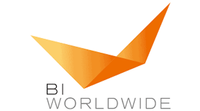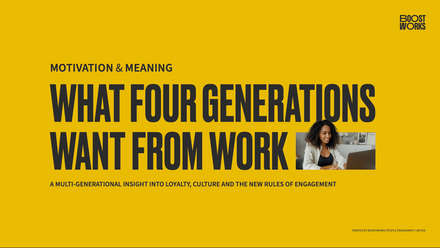Employee engagement trends and what to watch out for in 2025
The debate surrounding hybrid work is ongoing, with some companies questioning the possibility (and feasibility) of return to office mandates.
Add the proliferation of artificial intelligence (AI), developing corporate and social responsibility (CSR) agendas and the changing workforce, and employers have plenty of issues to occupy their watchlists next year.
The arrival of Gen Alpha is set to disrupt the workforce even further.
What remains constant in these times of change, however, is the importance of uniting teams and fostering human connections.
Here are some of the trends set to make a mark in 2025:
1. Human-centric leadership
According to Culture Amp, the most influential factor associated with employee engagement is confidence in company leadership, highlighting the importance of strong, empathetic leadership.
However, Forbes reports that only 50% of employees describe their CEO as empathetic, despite 96% believing this to be crucial for employee retention.
In 2025, employers must focus on training leaders in empathy techniques. Equipping them with tools that encourage regular recognition - such as reminders for overdue recognitions and alerts for key employee milestones - can help boost their connections to their teams.
2. Strategic engagement
In 2024, there was a noticeable increase in the use of employee engagement programmes to support strategic organisational objectives, includingCSR, environmental and social governance (ESG), learning and development, equality and wellbeing.
Supporting initiatives or causes valued by employer and employee can yield benefits that extend far beyond the strategic objective itself.
Aligning employee engagement programmes with these initiatives, and rewarding behaviours that drive both business success and employee satisfaction, also gives employees a sense of purpose in their work.
3. Multigenerational workforce
Attracting, retaining and integrating the next wave of talent relies on employers taking a multigenerational approach.
Get it right, and this approach can become your superpower, with multigenerational workplaces offering benefits such as diverse perspectives, better decision-making, and increased innovation.
In 2025, employers should focus on developing tailored recognition and development programmes that cater to each generation.
4. AI integration
The future of reward and recognition technology lies in integrating AI to create meaningful recognition whilst preserving the authenticity that makes employees feel truly valued.
For example, using AI to nudge managers for regular recognitions, suggest appropriate awards, or detect tone and sentiment in recognition messages.
Organisations that get this balance right will be well-positioned to foster a positive and productive work environment.
5. Remote and hybrid work
One of key challenges of remote work related to career growth, according to research, is getting recognized by leadership.
Global recognition programmes can be a critical tool to help address this challenge.
BI WORLDWIDE's New Rules of Engagement research has found that fully remote workers struggle more with feeling connected to their company culture, but when they receive recognition aligned with company values, they feel just as connected as those who are hybrid.
Ensuring all employees feel valued and connected, regardless of their work location, will be key in 2025.
Implementing global recognition programmes that are aligned with company values can maintain connections across different work formats and keep employee engagement consistent across teams.
6. People analytics
According to CIPD, HR plays a crucial role in supporting strategic business objectives.
Having a strong employee value proposition (EVP) gives employees reasons to stay and inspires them to produce better work and results for the business.
Companies with higher employee engagement see a 21% increase in profitability, according to Gallup.
Measuring the impact of recognition programmes is key, and will rely on a range of metrics and feedback mechanisms.
For example, having employee net promoter scores (eNPS) as the ‘golden thread’ that tracks the employee journey, and regularly capturing data such as employee retention rates, employee satisfaction ratings, and exit interview feedback.
7. Continuous learning
Despite the clear benefits of upskilling, according to Gallup, only 14% of US workers say employees at their organisation are regularly recognised for learning a new skill.
Recognising employees for their efforts in learning a new skill can contribute towards a culture of continuous improvement.
And with the digital skills gap likely to prevail in 2025, leaders should be leveraging recognition as a powerful tool to boost upskilling in their organisations.
By integrating recognition into training programmes, or incorporating learning opportunities into rewards platforms, leaders can make the recognition experience more meaningful and ensure employees feel valued and motivated to continue their professional development.
Read BI WORLDWIDE's full report: Empowering connections with employee programmes.
Supplied by REBA Associate Member, BI WORLDWIDE
BI WORLDWIDE is a global engagement agency delivering measurable results for clients through inspirational employee and channel reward and recognition solutions.








